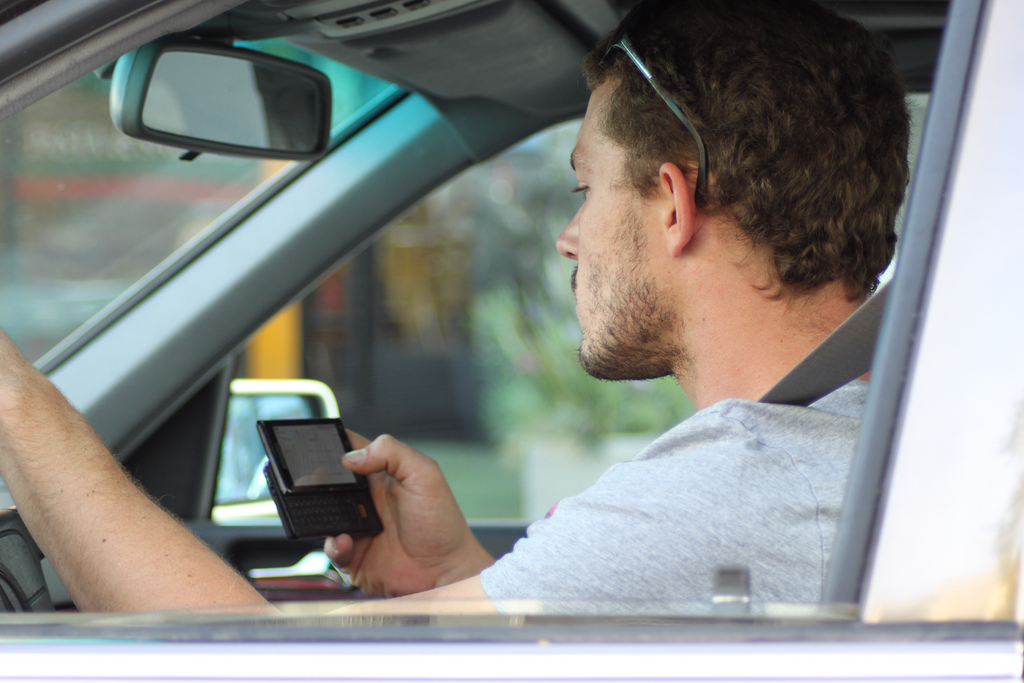You are driving down Main Street and your phone vibrates. The light in front of you turns red and traffic comes to a stop, so you take your phone from your pocket and check the screen. A friend has sent you a dank meme. You laugh as you text a brief reply. Noticing that traffic is moving again, you put your phone back in your pocket and continue along your way.
You get a little ways down the street before you realize that a cop car behind you has switched on its lights. The officer is signaling you to pull over. You obey, and when he gets up to your window, he cites you for distracted driving.
Last September, the city of Bexley passed an ordinance prohibiting the use of handheld devices while operating a vehicle. Distracted driving is now a primary offense within the city limits.
The ordinance was originally proposed by Mayor Ben Kessler, after he saw signs indicating a similar ban in Cleveland. He thought that proposing the ordinance would be a good idea based on his own experience witnessing distracted driving.
The ban is intended to curtail the number of automobile accidents within the city in order to protect both drivers and pedestrians.
“Bexley is a very walkable place,” Kessler said. “We don’t just have Capital students [walking around], we have high school and middle school … There’s lots of possibility for injury.”
The law initially had a warning period, in which violators were not issued tickets upon their first offense. However, the period has ended, and officers have full discretion to either issue a citation or a warning. There were approximately 80 warnings and 10 citations given out during the law’s two and a half month warning period.
“We’re not out to get anybody,” Kessler said. “It’s more about the importance of educating drivers and preventing accidents.”
Drivers will notice that there are signs indicating the new law scattered around the city, with one at every entry point.
“They’re not bright and flashy, but they’re regulation,” Kessler said.
Surrounding cities have taken notice of the new law and shown interest in pursuing something similar, but nothing can be confirmed at this time. Kessler said he believes it is likely that some cities will soon follow suit.
There were 1,850 accidents reported in the state of Ohio last year, and proponents of such laws argue that their passage will give cities the ability to educate drivers and help lower the number of accidents that happen each year.

